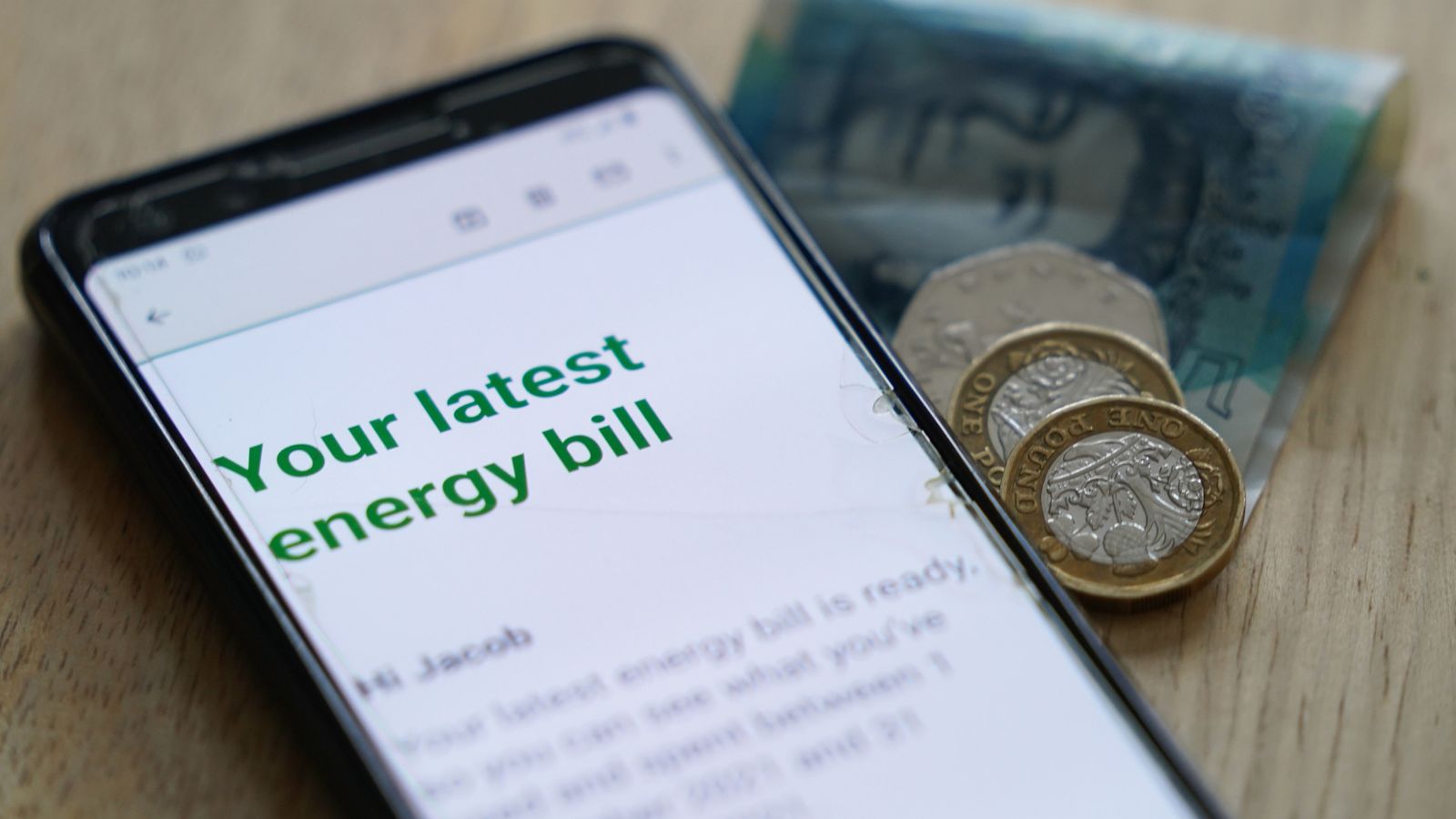
Households on the energy price cap will see a 7% reduction in their average annual payments from 1 July, the industry regulator has announced while urging households to seek out the “better deals out there”.
The default cap – which is reviewed every three months – will see a typical household using gas and electricity and paying by Direct Debit stump up an average annual £1,720, Ofgem said.
That is down from the current April-June figure of £1,849 and reflects a reduction in wholesale gas prices.
Money latest: How energy price cap dip will affect me
The lower cap, however, will be £152 higher than the same three-month period last year.
It does not affect the millions of households to have taken a time-limited fixed deal.
Nevertheless, it represents some relief for families grappling with the cost of living aftershock that saw many essential bills rise by well above the rate of inflation last month.
Ofgem also confirmed further bill savings through a £19 average cut, from July, in standing charges for households paying by both direct debit and prepayment following an operating cost and debt allowances review.
The price cap does not limit total bills because householders still pay for the amount of energy they consume.
The watchdog’s announcements were made just days after fresh forecasts suggested that bills linked to the cap could come down further from both October and January, given recent wholesale market price trends.
Industry data specialist Cornwall Insight estimated on Friday that the price cap was currently on course to rise only slightly in October – by less than £1 a month.
Wholesale gas costs last winter had been relatively stable until a cold snap hit much of Europe in January and early February, driving up demand at a time of weaker stocks.
Other risk factors ahead include extended EU gas storage rules and global conflicts, not least the continuing Russia-Ukraine war that sparked the 2022 energy price spike and cost of living crisis in the first place.
Tim Jarvis, director general of markets at Ofgem, said: “A fall in the price cap will be welcome news for consumers, and reflects a reduction in the international price of wholesale gas. However, we’re acutely aware that prices remain high, and some continue to struggle with the cost of energy.
“The first thing I want to remind people is that you don’t have to pay the price cap – there are better deals out there so it’s important to shop around, and talk to your existing supplier about the best deal they can offer you. And changing your payment method to direct debit or smart pay as you go can save you up to £136.”
Read more:
Economy must be ‘strong enough’ for U-turn on winter fuel payments
Ofgem said that a minority of homes, 35%, were on a fixed rate deal.
Price comparison sites lined up after the price cap announcement to urge households still on the default tariff to investigate a switch.
Tom Lyon, director at Compare the Market said: “If anyone is worried about potentially higher energy bills later this year, they could consider locking in a fixed rate deal now.
“Fixed rate deals also protect you from price hikes if the oil and gas markets are volatile. Beyond your energy bills, it’s important to search and compare other household bills, such as your car insurance, credit cards, or broadband, to see if you can make savings.”






